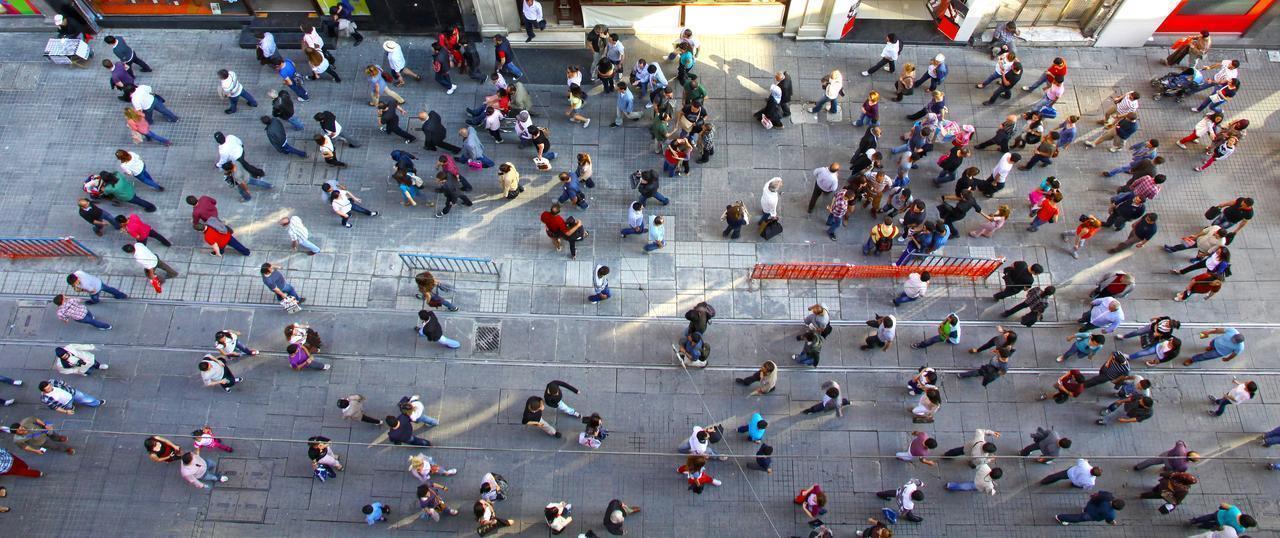‘Social inclusion must be the foundation of every policy’: Faizan Azizi at United Nations World Summit in – Times of India

Report on the Second World Summit for Social Development: A Focus on the Sustainable Development Goals
Summit Overview and SDG Progress Review
At the United Nation’s Second World Summit for Social Development, held in Doha, Qatar, from November 3-6, 2025, Dr. Faizan Ahmed Azizi, representing India, underscored the critical need for social inclusion as a foundational principle for all policy-making. The summit convened to review the Copenhagen Declaration and the UN 2030 Agenda for Sustainable Development. Dr. Azizi noted that despite three decades of effort, the original goals remain largely unfulfilled, a sentiment echoed in the UN SDG Progress Report 2025.
Challenges to Achieving the 2030 Agenda
Dr. Azizi highlighted significant impediments to global progress, emphasizing that nearly half of the Sustainable Development Goals are off track. Key challenges identified include:
- Global Crises: Ongoing conflicts, climate change, and widening economic divides are derailing progress across multiple SDGs.
- Governance Failures: Corrupt and divisive governance in developing nations exacerbates conditions that undermine several goals, including:
- SDG 1 (No Poverty): Fueling poverty and instability.
- SDG 10 (Reduced Inequalities): Leading to forced migration.
- SDG 3 (Good Health and Well-being): Resulting in overcrowded public hospitals.
- SDG 4 (Quality Education): Contributing to the commercialization of education.
- Lack of Accountability: Dr. Azizi warned that without a renewed focus on justice and accountability, both the Copenhagen Declaration and the UN 2030 Agenda are at risk of collapse, directly impacting SDG 16 (Peace, Justice and Strong Institutions).
Proposed Initiatives to Accelerate SDG Achievement
In his address at the Parliamentary Forum, Dr. Azizi presented a series of proposals aimed at strengthening global efforts to meet the SDGs:
- Strengthen Global Partnerships (SDG 17): A call was made to enhance collaboration between parliaments, civil society, and UN-accredited organizations to create a more effective implementation framework.
- Establish a Global Skills Alliance: To address SDG 8 (Decent Work and Economic Growth) and SDG 4 (Quality Education), this alliance would bridge the gap between education and labour market demands for youth employment.
- Promote Joint Investment: Nations were urged to jointly invest in essential public services to advance SDG 4 (Quality Education), SDG 3 (Good Health and Well-being), and social protection systems linked to SDG 1 (No Poverty).
- Create the India–Qatar Youth Employment Corridor: A specific proposal to establish “Qatar-Ready Skill Hubs” in India. This initiative aims to create a model of ethical labor mobility, contributing to:
- SDG 8 (Decent Work and Economic Growth): By providing skilled, certified workers.
- SDG 10 (Reduced Inequalities): By empowering underprivileged Indian youth through training and job placement.
- SDG 17 (Partnerships for the Goals): Through a bilateral partnership between India and Qatar.
HSCF’s Multi-Sectoral Approach to Urban Poverty and Inequality
Dr. Azizi shared the Human Social Care Foundation’s six-year roadmap, which integrates multiple SDGs to combat urban poverty and social inequality in India. The strategy’s key focus areas are directly aligned with the 2030 Agenda:
- Social Justice and Peace: Upholding human rights and advocating for peace, in line with SDG 16 (Peace, Justice and Strong Institutions).
- Health and Well-being: Improving healthcare access, targeting SDG 3 (Good Health and Well-being).
- Inclusion and Equality: Promoting inclusion and tackling gender and caste inequality, directly addressing SDG 5 (Gender Equality) and SDG 10 (Reduced Inequalities).
- Community Empowerment: Fostering local development and participation.
In conclusion, Dr. Azizi reiterated that achieving the vision of dignity, equality, and justice for all is contingent upon a collective commitment to good governance, inclusion, and unity, which form the bedrock for the successful implementation of all Sustainable Development Goals.
Analysis of SDGs, Targets, and Indicators
SDG 1: No Poverty
- The article directly addresses poverty, noting that “corrupt and divisive governance in several developing nations continues to fuel poverty.” Dr. Azizi’s foundation has a roadmap to “combat urban poverty” in India, linking this goal to the core issues discussed at the summit.
SDG 3: Good Health and Well-being
- The article highlights concerns about healthcare systems, with Dr. Azizi stating, “Public hospitals are overcrowded.” He also calls for countries to “jointly invest in… healthcare,” positioning health as a critical area for social development and inclusion.
SDG 4: Quality Education
- Education is a central theme. The article mentions the problem of education being “commercialized,” making it inaccessible. Furthermore, the proposed “Global Skills Alliance for youth employment” and “Qatar-Ready Skill Hubs” directly aim to connect education with employment needs, emphasizing vocational training and skills development.
SDG 5: Gender Equality
- The article mentions that a key focus area for the Human Social Care Foundation is “gender and caste equality,” explicitly connecting the fight for social inclusion with the goal of achieving equality for all genders.
SDG 8: Decent Work and Economic Growth
- This SDG is central to the proposed initiatives. The “Global Skills Alliance for youth employment” and the “India–Qatar Youth Employment Corridor” are designed to create job opportunities and ensure decent work. The article also touches upon the need for “ethical labor mobility” and providing workers with “formal skill certification,” which are key components of this goal.
SDG 10: Reduced Inequalities
- The entire article is framed around tackling “persistent social and economic inequalities” and “widening economic divides.” Dr. Azizi’s core message is that “social inclusion must be the foundation of every policy.” The focus on “gender and caste equality” and combating “social inequality” directly aligns with this goal. The call for “ethical labor mobility” also addresses inequalities faced by migrant workers.
SDG 16: Peace, Justice, and Strong Institutions
- The article critiques “corrupt and divisive governance” as a root cause of poverty and instability. Dr. Azizi’s call for “justice and accountability” as a prerequisite for achieving the UN Agenda 2030 underscores the importance of strong, transparent, and just institutions. The mention of standing for “human rights and peace in Palestine” also connects to this goal.
SDG 17: Partnerships for the Goals
- The article explicitly discusses the need for collaboration. Dr. Azizi presented a proposal to “strengthen partnerships between parliaments, civil society, and UN-accredited organizations.” The proposed “India–Qatar Youth Employment Corridor” is a clear example of a bilateral partnership aimed at achieving sustainable development objectives.
Specific SDG Targets Identified
SDG 1: No Poverty
- Target 1.3: Implement nationally appropriate social protection systems and measures for all. This is addressed by the call to “jointly invest in… social protection systems” to shield the poor and vulnerable.
SDG 3: Good Health and Well-being
- Target 3.8: Achieve universal health coverage. The statement that “Public hospitals are overcrowded, and the poor are paying the price” points to a failure in providing accessible healthcare, which this target aims to rectify through investment.
SDG 4: Quality Education
- Target 4.4: By 2030, substantially increase the number of youth and adults who have relevant skills, including technical and vocational skills, for employment, decent jobs and entrepreneurship. This is the primary focus of the proposed “Global Skills Alliance for youth employment” and the “Qatar-Ready Skill Hubs.”
SDG 8: Decent Work and Economic Growth
- Target 8.6: By 2020, substantially reduce the proportion of youth not in employment, education or training. The “India–Qatar Youth Employment Corridor” is a direct initiative to address this target by providing training and job placements for underprivileged youth.
- Target 8.8: Protect labour rights and promote safe and secure working environments for all workers, including migrant workers. This is reflected in the goal to create a “model of ethical labor mobility.”
SDG 10: Reduced Inequalities
- Target 10.2: By 2030, empower and promote the social, economic and political inclusion of all, irrespective of age, sex, disability, race, caste, ethnicity, origin, religion or economic or other status. This is the core message of the article, encapsulated in the statement, “Social inclusion must be the foundation of every policy.”
- Target 10.7: Facilitate orderly, safe, regular and responsible migration and mobility of people. The proposal for a “structured India–Qatar Youth Employment Corridor” and “ethical labor mobility” directly addresses this target.
SDG 16: Peace, Justice, and Strong Institutions
- Target 16.6: Develop effective, accountable and transparent institutions at all levels. The article’s critique of “corrupt and divisive governance” and the call for “justice and accountability” align with this target.
SDG 17: Partnerships for the Goals
- Target 17.17: Encourage and promote effective public, public-private and civil society partnerships. Dr. Azizi’s proposal to “strengthen partnerships between parliaments, civil society, and UN-accredited organizations” is a direct call to action for this target.
Implied Indicators for Measurement
- The article does not mention official UN indicators but implies several metrics for measuring progress:
- For Education and Employment (SDGs 4 & 8): The number of “Qatar-Ready Skill Hubs” established; the number of underprivileged Indian youth receiving training, education, and job placements; and the percentage of Indian workers in Qatar who possess formal, co-certified skill certification.
- For Health (SDG 3): Indicators of hospital capacity and accessibility, such as patient-to-bed ratios or waiting times, are implied by the mention of “overcrowded” public hospitals.
- For Inequality and Migration (SDG 10): The successful implementation of an “ethical labor mobility” model could be measured by indicators related to worker welfare, wage parity, and protection of rights for migrant workers.
- For Governance (SDG 16): While not a quantitative metric from the article, progress could be measured by public perception surveys on governance corruption and accountability, which are implied by the call for “good governance.”
SDGs, Targets, and Indicators Table
| SDGs | Targets | Indicators (Implied from the Article) |
|---|---|---|
| SDG 1: No Poverty | 1.3: Implement social protection systems. | Level of investment in social protection systems. |
| SDG 3: Good Health and Well-being | 3.8: Achieve universal health coverage. | Metrics on hospital overcrowding (e.g., bed capacity, patient wait times). |
| SDG 4: Quality Education | 4.4: Increase the number of youth and adults with relevant skills for employment. | Number of skill hubs created; Number of youths trained and certified. |
| SDG 5: Gender Equality | 5.1: End all forms of discrimination against all women and girls. | Implementation of policies focused on gender and caste equality. |
| SDG 8: Decent Work and Economic Growth | 8.6: Reduce the proportion of youth not in employment, education or training (NEET). 8.8: Protect labour rights and promote safe working environments. |
Number of youths placed in jobs through the employment corridor; Establishment of ethical labor mobility frameworks. |
| SDG 10: Reduced Inequalities | 10.2: Empower and promote social, economic and political inclusion. 10.7: Facilitate orderly, safe, and responsible migration. |
Implementation of policies with social inclusion as a foundation; Number of workers benefiting from structured, ethical migration programs. |
| SDG 16: Peace, Justice, and Strong Institutions | 16.6: Develop effective, accountable and transparent institutions. | Measures of governance effectiveness and public trust (implied by calls against corruption). |
| SDG 17: Partnerships for the Goals | 17.17: Encourage and promote effective public, public-private and civil society partnerships. | Number and effectiveness of partnerships formed between parliaments, civil society, and international bodies. |
Source: timesofindia.indiatimes.com
What is Your Reaction?
 Like
0
Like
0
 Dislike
0
Dislike
0
 Love
0
Love
0
 Funny
0
Funny
0
 Angry
0
Angry
0
 Sad
0
Sad
0
 Wow
0
Wow
0














































































